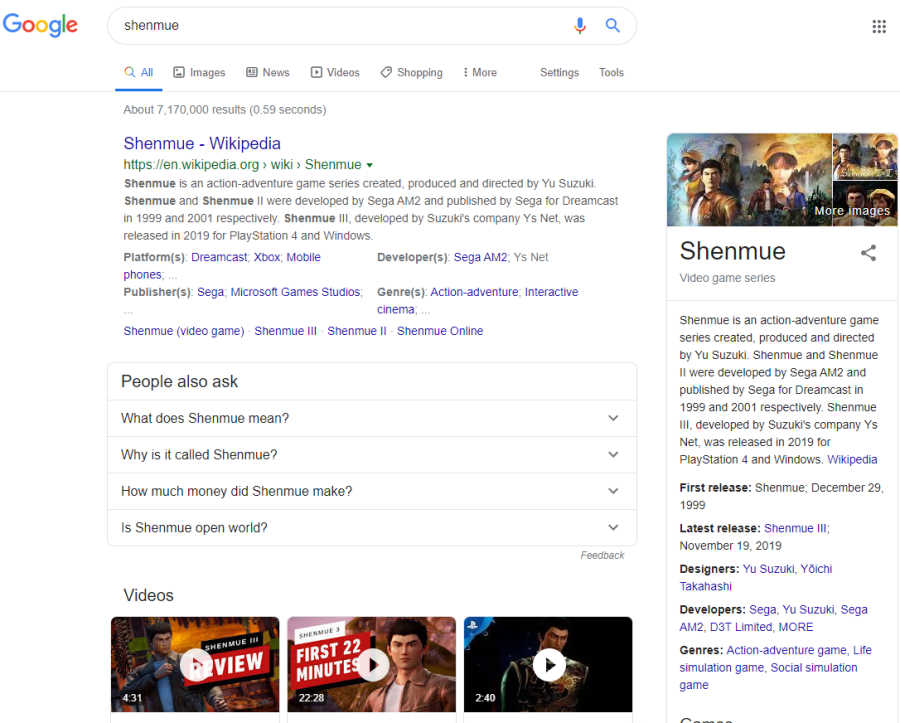
DuckDuckGo is a search engine that has made a name for itself due to its claim that it is the “private” search engine. Let’s explore what that means and what makes it a compelling alternative to Google.
Background Info on DuckDuckGo

DuckDuckGo was founded by Gabriel Weinberg and first launched in 2011. It is considered a “hybrid” search engine in that it searches various sources to display its results, which is different from Google’s massive crawling ability to do everything itself.
It first became more mainstream when it was unveiled in 2014 that Apple would be including it as a choice in a small list of search engines in iOS 8 and OS X (now macOS) Yosemite.
Since that time, it has continued to grow and in March 2019, Google added DuckDuckGo to its own list of search engine choices in Google Chrome version 73.
Pros and Cons
Privacy
Even if you are using something that is not Google Chrome (Vivaldi / Brave / Opera), Google is still tracking everything if you use their search engine. This is where DuckDuckGo comes in. It doesn’t keep track of what you searched for and doesn’t try to build a profile about you, which Google aggressively does. However, people’s search history should not follow them around the web. For example, searching for a coffee maker should not mean that you see ads for coffee makers on your phone or other sites you visit. DDG simply has better privacy than Google.
Search Results
This could be good or bad, depending on who you are and what kind of searches you do. I remember having to stop using DuckDuckGo many years ago because the results were less than stellar. I’d look up troubleshooting articles and DDG would give me older ones when Google had much more recent results. The non-English search results (Japanese) were not particularly great and I often had to resort to using Google in the end.
I’m happy to say that as of 2019, the results are decent and I am able to use DuckDuckGo as my main search engine on most of my devices. I think DDG also does a good job of eliminating a lot of blog spam and other obnoxious sites that might be trying to game Google’s algorithms.
Let’s compare the search results when searching for the game series “Shenmue” on both Google and DuckDuckGo.
DDG


Bangs
Search bangs are a unique feature for DuckDuckGo. If you start your search with an exclamation mark (!) and follow it with a certain word, you’ll be able to do specific searches. For example, if I know I want to search imdb, I can type “!imdb Home Alone” which will start my search on imdb for movies called Home Alone. It’s a time saver if you can remember to use bangs.

There are so many of them, so I suggest checking the list and trying to remember which ones you think you’ll use the most. For me personally, I use the Japanese dictionary bang.
Ads
DuckDuckGo has ads, just like other search engines. The difference is they are only ads based on the search keywords you typed in. They are not based on your profile or any link to you as a user. If you search for “laptop”, maybe you’ll see some ads that are targeted towards users searching for computers. However, the ads are not personally targeted at you, just the search terms.

One thing people may not know is you can actually turn off the ads on DuckDuckGo by going to the settings.
Image Search
Google made a change to its search results a while back affecting how their image search works. In the past, you could search for something and see a link directly to the file itself, which was really convenient. They did away with this option and now users are forced to click the link to go directly to the website to find the photo. It usually takes me a while to scroll through the page to find it.
Google Image search

DuckDuckGo’s image search is more compact and keeps the feature that I appreciated about the old Google Image search. I can click the “view file” button and go directly to the photo I was looking at. No more wasting time trying to find it on the site itself. Bad for webmasters, but great for web surfers.
DuckDuckGo Image Search


Customization
As far as I know, Google isn’t very customizable when it comes to the search results page. You might be able to change a few things, but not much.
DDG lets you change the theme, fonts, what appears in headings and footers, and much more. I highly recommend diving in and making the search results look how you prefer.
Here’s an example of the dark theme that I really appreciate for night time browsing.

Final Thoughts on DuckDuckGo
It’s about time that a service like DuckDuckGo started to gain traction to counter just how massive Google has become when it comes to search on the web and mobile. I use it as my default search engine and I’m pretty pleased with the results these days.
Try switching over to it in your browser of choice and see how you like it.
Link: Go try it!